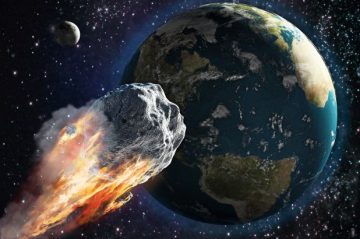
On January 7th, 2020 asteroid trackers from the National Aeronautics and Space Administration (NASA) observed a 1800 feet (550 meters) long asteroid approaching Earth.
From its current trajectory, the asteroid trackers predict the asteroid to reach Earth on January 10th, 2020. This asteroid was labeled as “potentially hazardous”, as it has yet to be confirmed if it will collide with Earth.
NASA claims that the percentage that the asteroid will crash into Earth is low, as it currently does not have enough velocity to break into the Earth’s gravitational field. NASA predicts the trajectory and collision chance by examining the “shape, size, mass, composition, and structure” of the asteroid.
NASA explained that the only way for a body of rock from outer space to crash into Earth is when “the gravitational effects of other bodies in the solar system nudge them” into Earth-bound trajectories.
Although NASA predicts the current possibility of a crash to be relatively low, this “allows the possibility of a future collision”. This is because the asteroid will travel through the solar system and revisit Earth on November 18th, 2032 and December 31st, 2034. When these times come, the asteroid will approach Earth at a greater velocity, as it has had more time to travel through space.
If the asteroid does crash into the earth on January 10th, 2020, its velocity at collision will be approximately 9.40 kilometers per second. If the asteroid evades Earth, it will miss by a margin of about 4.5 million kilometers.
Other asteroid experts claim that this report is nothing more than NASA trying to gather publicity, and the asteroid presents no threats to Earth at its current conditions.
Isco K, a junior at AISG, has been interested in asteroids for a long time. His take on this particular asteroid is: “I actually agree with the asteroid experts outside of NASA. NASA has been known to pull off these irrelevant reports in the past just to gather publicity for an upcoming project. What we can take from this report is that there will be two more irrelevant reports of asteroids in 2032 and 2034.”